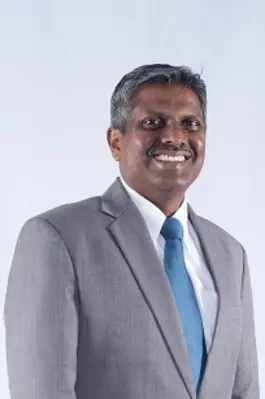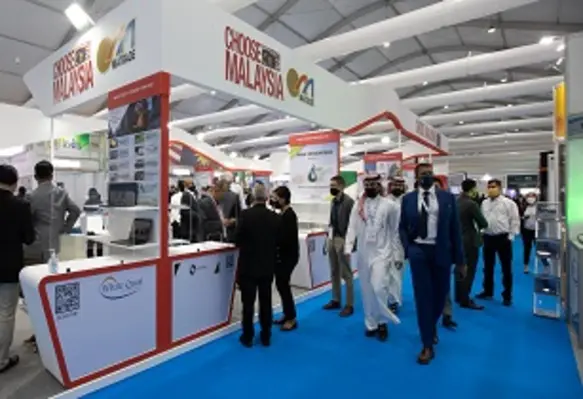Mr Jai Shankar, director and sustainability lead, oil & gas, chemical & energy at MATRADE, the Malaysian export promotion agency, spoke to Oil Review Middle East at ADIPEC about the involvement of Malaysian oil and gas companies in the Middle East, the role of MATRADE and the Malaysian participation at ADIPEC
Jai began by discussing the strengths of Malaysian oil and gas companies, stressing that the Malaysian oil and gas sector is very mature.
“What it brings is to the fore is a lot of experience; many of these companies have been around for many years, serving primarily Petronas and other oil companies based in Malaysia. So they know the business.
“The second thing, which I believe is underappreciated, is communication – Malaysian companies understand local expectations. This is important because much of the time we deal with global players and the expectations are global in nature. The relationship has changed because contractually, it’s no longer just about product quality and price, it’s about partnership and knowing your partner. Communication, understanding and managing expectations on a global level are even more important today, with ESG and sustainability concerns coming to the fore. That appreciation is important, moving forward. You’ve got to make sure your service delivery, people management and supply chain meet expectations in regards to sustainability, ESG and governance.
“That’s one of the big things we’re looking at - educating Malaysian companies and ensuring they understand the expectations, demands and pressures on oil and gas companies so there’s a level of confidence as far as the buyer or project holder is concerned. In the past we did not have all those expectations, regulatory and stakeholder pressures. All eyes now are on the industry. The whole world economy is going through a transition period.”
“The second big trend alongside sustainability is digitalisation,” he continues. “This has accelerated due to the fact that over the past couple of years there has been tremendous pressure on costs, exacerbated by Covid. The oil and gas sector has been very conservative in the past, but now we are seeing digitalisation in the true sense of the word, on a broad level. ADNOC is digitalising wholesale, as are all the majors. It’s real, it’s here and it’s present across the supply chain. We understand and appreciate that.
“Digitalisation is entwined with sustainability, as it will provide the data framework that will enable sustainability. We see that need and are applying ourselves to that.
“So ultimately that is our value proposition; starting with our experience and understanding, and moving forward, the sustainability path, and digitalisation.”
 Discussing the outlook for Malaysian oil and gas companies in the Middle East, Jai comments, ”Malaysian oil and gas companies are very comfortable in the Middle East, for various reasons. The communications and cultural fit are there, which makes it easier. More importantly, they have strong relationships with the major players in the market. Matrade has offices in Jeddah, Dubai, and Qatar, there is a sizeable Malaysian population here involved in oil and gas, and you can find Malaysian engineers who have been working in this region for a long time. We’ve got the ecosystem, which makes market access easier.”
Discussing the outlook for Malaysian oil and gas companies in the Middle East, Jai comments, ”Malaysian oil and gas companies are very comfortable in the Middle East, for various reasons. The communications and cultural fit are there, which makes it easier. More importantly, they have strong relationships with the major players in the market. Matrade has offices in Jeddah, Dubai, and Qatar, there is a sizeable Malaysian population here involved in oil and gas, and you can find Malaysian engineers who have been working in this region for a long time. We’ve got the ecosystem, which makes market access easier.”
He adds that Malaysian companies are looking to use the Middle East as a platform to reach the booming African market, through partnerships with Middle East companies.
“Malaysia has very good relations with African countries. Middle East companies have historical links, while Malaysia has the manpower. Malaysian companies are ready to be more aggressive and are looking to evolve and expand internationally. Malaysian companies are multicultural and international in outlook, and are comfortable in approaching new markets. For us, meaningful partnership matters; the way we access markets is through relationships.”
Malaysian companies are also looking at the Middle East as a hub and base for joint ventures, he says. “A lot of companies here are looking to expand. Malaysia can act as a base to access East Asia, ASEAN, and south Asia. We are really encouraging partnerships; with digitalisation you need partnership, because a lot of innovations are at an early stage, and you need a track record and industrial partners.”
Turning to the role of MATRADE, Jai says this encompasses two key areas - capacity building and export promotion.
“Participation at events such as ADIPEC gives us the market intelligence to prepare our companies. MATRADE has 46 offices worldwide, we have our ear to the ground for the demand trends, then get our companies ready, onboard them and encourage them to participate. We are in discussion with many of the major companies in the region such as Aramco and bapco, to help onboard them.”
Sixteen leading Malaysian companies showcased their products and services at the Malaysian Pavilion at ADIPEC, representing a diverse range of companies. They included innovative digital company Innoveam, which specalises in 3D data solutions using virtual reality and augmented reality; Pioneer Engineering, a leading service provider in the Malaysian oil and gas industry; and MIT Technologies, which presented new technologies for drilling and completion.


